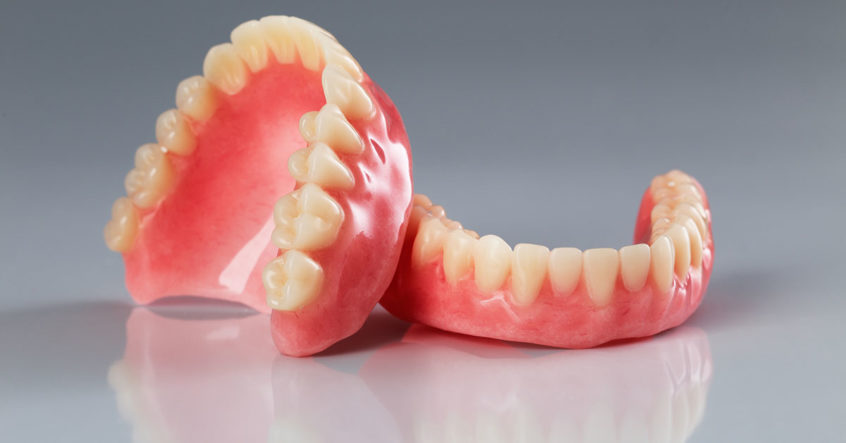Partial Dentures
A removable partial denture or bridge usually consists of replacement teeth attached to a pink or gum-colored plastic base, which is sometimes connected by metal framework that holds the denture in place in the mouth. Partial dentures are used when one or more natural teeth remain in the upper or lower jaw. A fixed bridge replaces one or more teeth by placing crowns on the teeth on either side of the space and attaching artificial teeth to them. This "bridge" is then cemented into place. Not only does a partial denture fill in the spaces created by missing teeth, but it also prevents other teeth from changing position. A precision partial denture is removable and has internal attachments rather than clasps that attach to the adjacent crowns. This is a more natural-looking appliance.

Advantages
- Removable dentures are considered as the most affordable means of having missing teeth replaced.
- Removable dentures are usually made on the same day as the check-up, bypassing the need to have to go for months without any teeth (which is what happens with full dentures.
- Having partial dentures fitted is very simple for both patients and dentists as there’s usually no surgery involved.
- Compared to dental bridge work, having partial dentures or removable denture fitted causes no damage to the teeth adjacent to the missing one.
Disadvantages
- It takes a lot of time to get used to wearing partial dentures and the fact that they’re usually much larger than natural teeth may make them uncomfortable to wear for as long as they’re worn.
- Partial dentures may also affect speech and function as it covers much of the roof of the mouth.
- The taste buds found on the roof of the mouth are affected by partial dentures, reducing your ability to taste the food.
- Partial dentures may make you more prone to mouth infections.
- Unfortunately, partial dentures won’t be able to solve the fact that, anatomically, you still are missing teeth and the bone in the area of the missing teeth will continue to shrink for as long as they’re not used.
- Partial dentures will have to be replaced every now and then as the dentures shrink and become loose over time.
Taking Proper Care Of Dentures
- Never let your dentures dry out. Either place them in a glass with denture cleanser soaking solution or just plain water. Avoid using hot water as it causes the dentures to warp.
- Brush your dentures as you would your normal set of teeth to rid it of food and dental plaque, as well as prevent stain build-up.
- It should already go without saying, but you should take care of your teeth as well. Add gargling with mouthwash and brushing your palate every morning to your daily routine, as doing both can help remove plaque.
All Services
Book Appointment
PLEASE FEEL FREE TO CONTACT US FOR EMERGENCY CASE.
On the other hand we denounce with righteous indignation and dislike men who are so beguiled.
